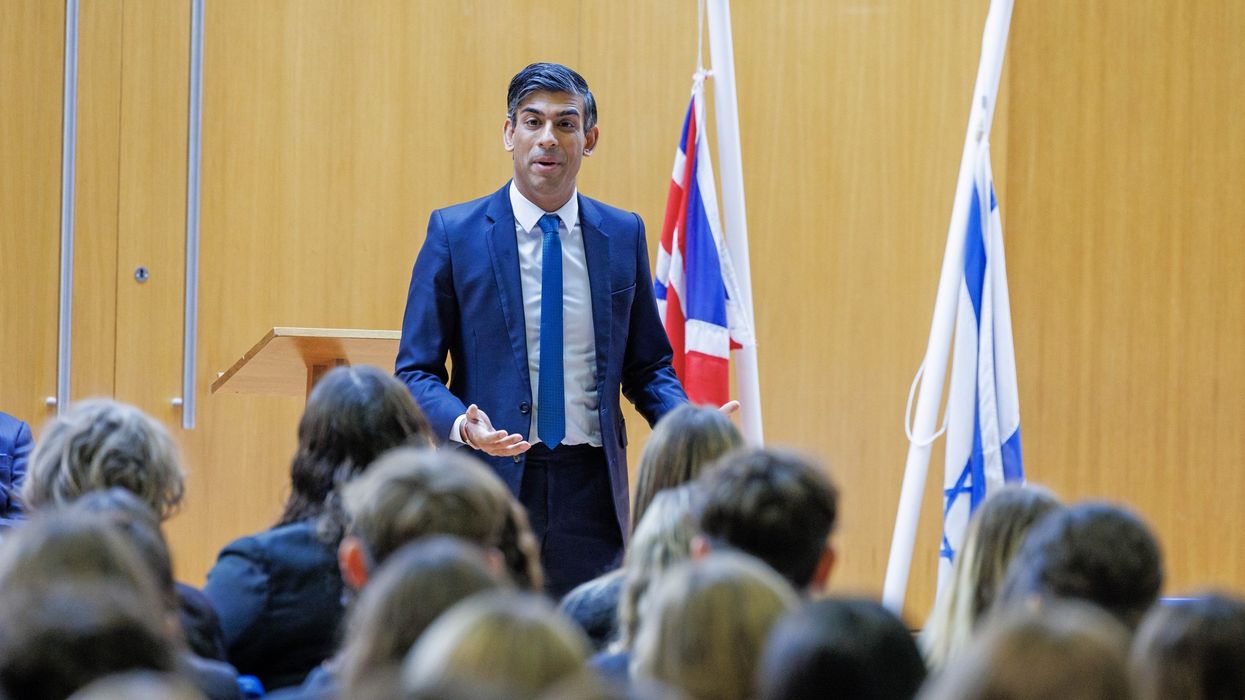Rishi Sunak announced a humanitarian aid funding of £10 million on Monday (16) for civilians in the Occupied Palestinian Territories (OPTs) in response to the escalating Israel-Gaza conflict.
During the announcement, he confirmed that six British nationals had lost their lives, and 10 others were still missing in the region.
Addressing members of Parliament in the House of Commons, Sunak delivered a statement to reiterate the UK's condemnation of Hamas' actions in both Israel and Gaza and called for immediate access for humanitarian organisations to be allowed to deliver life-saving aid.
He described the Hamas strikes on Israel on October 7 as a "pogrom" – an act of organised torture or killing of a large group of people on the basis of their race or religion.
"We should call it by its name: it was a pogrom," Sunak said.
He said the UK is also exploring options for moving humanitarian supplies closer to the region and is liaising with aid agencies in the region to ensure relief supplies can be distributed as quickly and effectively as possible.
“I'm proud that we are a longstanding and significant provider of humanitarian aid to the Palestinian people. And I can announce today that we are increasing our aid by a third, with an additional £10 million of support,” said Sunak.
“An acute humanitarian crisis is unfolding, to which we must respond. We must support the Palestinian people – because they're victims of Hamas too,” he said.
The government said the funding will allow trusted partners, including key United Nations (UN) agencies to provide essential relief items and services. These could include food, water and emergency shelter, depending on the needs on the ground.
“We are committed to supporting the Palestinian people – they are victims of Hamas too. This funding will provide vital, lifesaving support to Palestinian civilians who are caught up in this conflict and are in desperate need of help,” said UK Foreign Secretary James Cleverly.
Downing Street said both Sunak and Cleverly have spoken to Israel, Egypt and other international partners about opening the Rafah crossing to allow urgent humanitarian aid into Gaza and stressed that all UK aid funding targeted at Palestinian civilians undergoes “rigorous oversight” to ensure no funding goes to Hamas – a banned terrorist organisation in the UK.
Relatives of some of the missing Britons were in Parliament watching Sunak's statement, during which he said the UK government is working with Israel to establish the facts and support them through their "unimaginable pain".
He asserted the UK's stated stance that it would "support absolutely Israel's right to defend itself" in targeting Hamas and rescuing hostages from Gaza within international law.
Sunak said that Hamas is using Palestinians as human shields and 2,600 Palestinians have been killed since the fighting started, with Israel retaliating with airstrikes.
“We mourn the loss of every innocent life," added Sunak.
Opposition Labour leader Keir Starmer agreed that an "acute humanitarian crisis" is unfolding and Israel's defence "must be conducted in accordance with international law", as he noted that the Commons stands united in the face of this international crisis.
(PTI)












